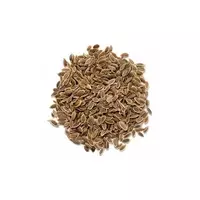Dill seeds

How often do you find large fragrant umbrellas along the way that sway smoothly on their even stems? And what a wonderful spicy smell they spread, bringing us the aromas of childhood. You have already guessed that we will talk about ordinary dill.
Dill is an annual spicy plant that is used as a spice in cooking, and as an excellent medicine in medicine. However, today we will not talk about the greens and stems of this useful plant, but about its seeds, which in the soil can remain viable for a long time.
This spice has achieved especially great popularity in the kitchens of our hostesses during the capping season. When salting and pickling tomatoes, cucumbers, cabbage and vegetable assortment, it is customary to add dill umbrellas with seeds, which in turn give the products all their spicy taste and unsurpassed aroma. The calorie content of dill seeds is 305 kcal per 100 grams.
By the way, in order to give the necessary dish a spicy taste, this spice is added along with other ingredients that are placed at the very beginning of cooking or stewing. For the best isolation of essential oil, experienced culinary experts recommend drying seeds in a hot pan before laying.
The beneficial properties of dill seeds extend not only to the field of cooking, but also to medicine, as well as cosmetology.
Benefits of dill seeds
Traditional medicine has found application to this plant, and it is safe to say that the benefits of dill seeds are obvious in inflammatory kidney diseases and for arousing appetite in people who recover from past diseases. It is also believed that infusions with seeds of this plant perfectly fight insomnia.
Dill seeds ground into powder are useful for gastritis with reduced acidity, liver and gallbladder diseases. This powder is used in folk medicine as a mild laxative and choleretic agent.
The benefits of dill seeds are also the ability to combat flatulence in infants (called colic) using a remedy called dill water.
Damage to dill seeds
The use of dill seeds is contraindicated in people with low pressure, as they can cause weakness, visual impairment, and sometimes fainting. Damage to dill seeds can also occur with individual intolerance to the components that are included in this plant.
Essential oils as part of dill can cause allergies in people with very sensitive skin, so be careful and consult your doctor before starting to use this plant.
dill seeds 305 kCal
Energy value of dill seeds (Ratio of proteins, fats, carbohydrates - ju):
Proteins: 15.98 (~ 64 kCal)
Fats: 14.54 g. (~ 131 kCal)
Carbohydrates: 55.17 g (~ 221 kCal)
Energy ratio (bj | y): 21% | 43% | 72%
 Español
Español Français
Français Português
Português Русский
Русский 简体中文
简体中文 繁體中文
繁體中文 日本語
日本語 한국어
한국어 العربية
العربية Türkçe
Türkçe Қазақ
Қазақ Deutsch
Deutsch Italiano
Italiano Українська
Українська
